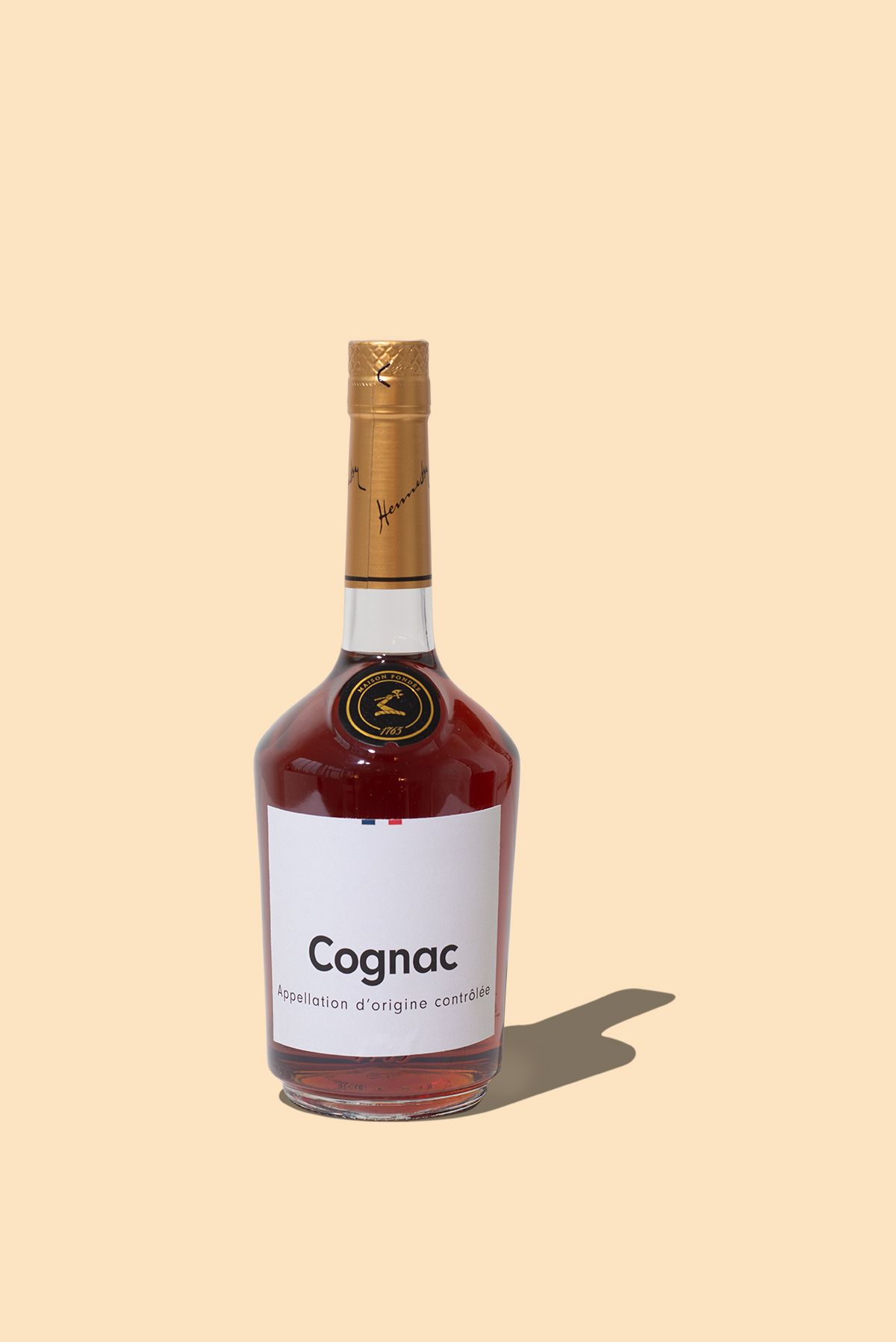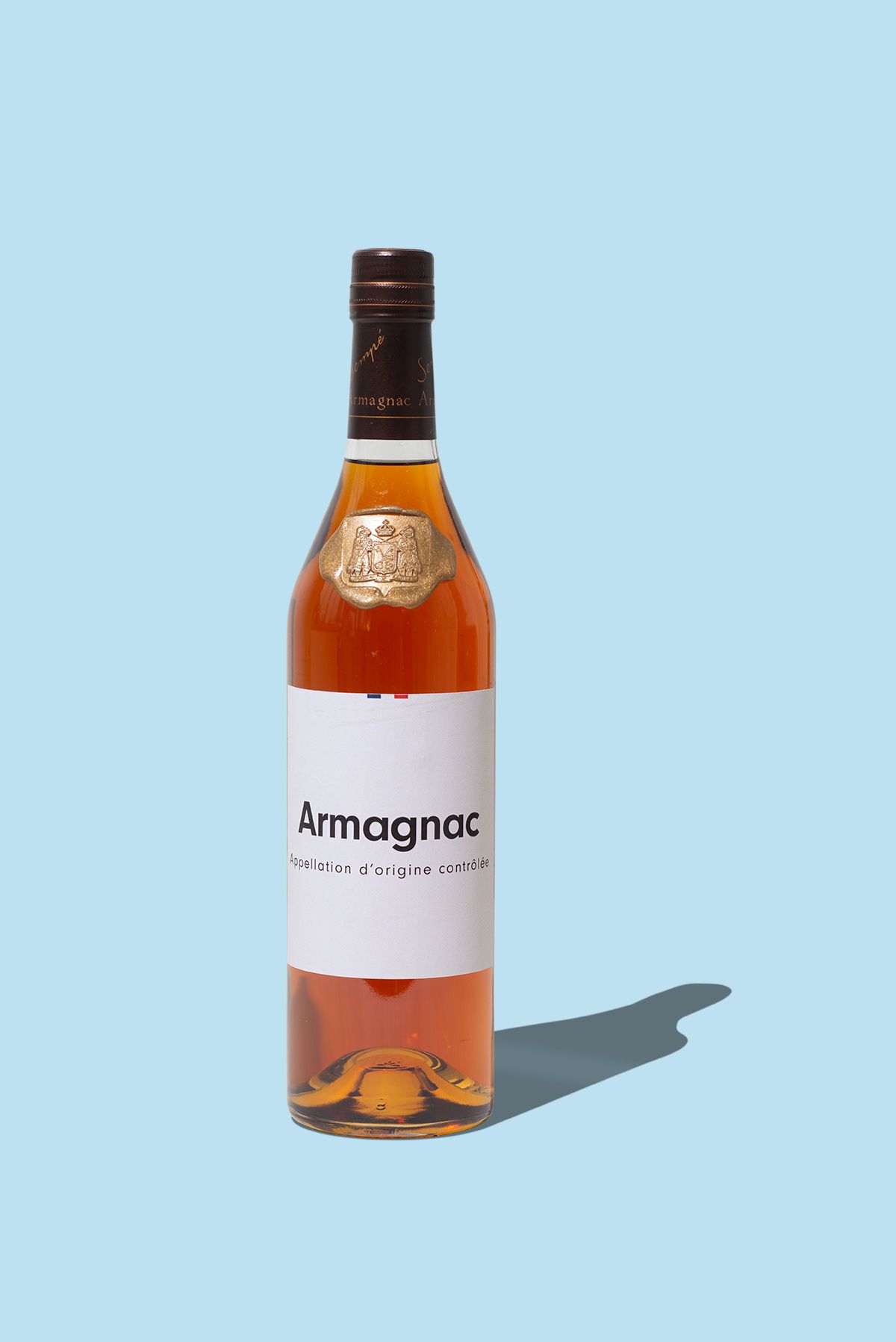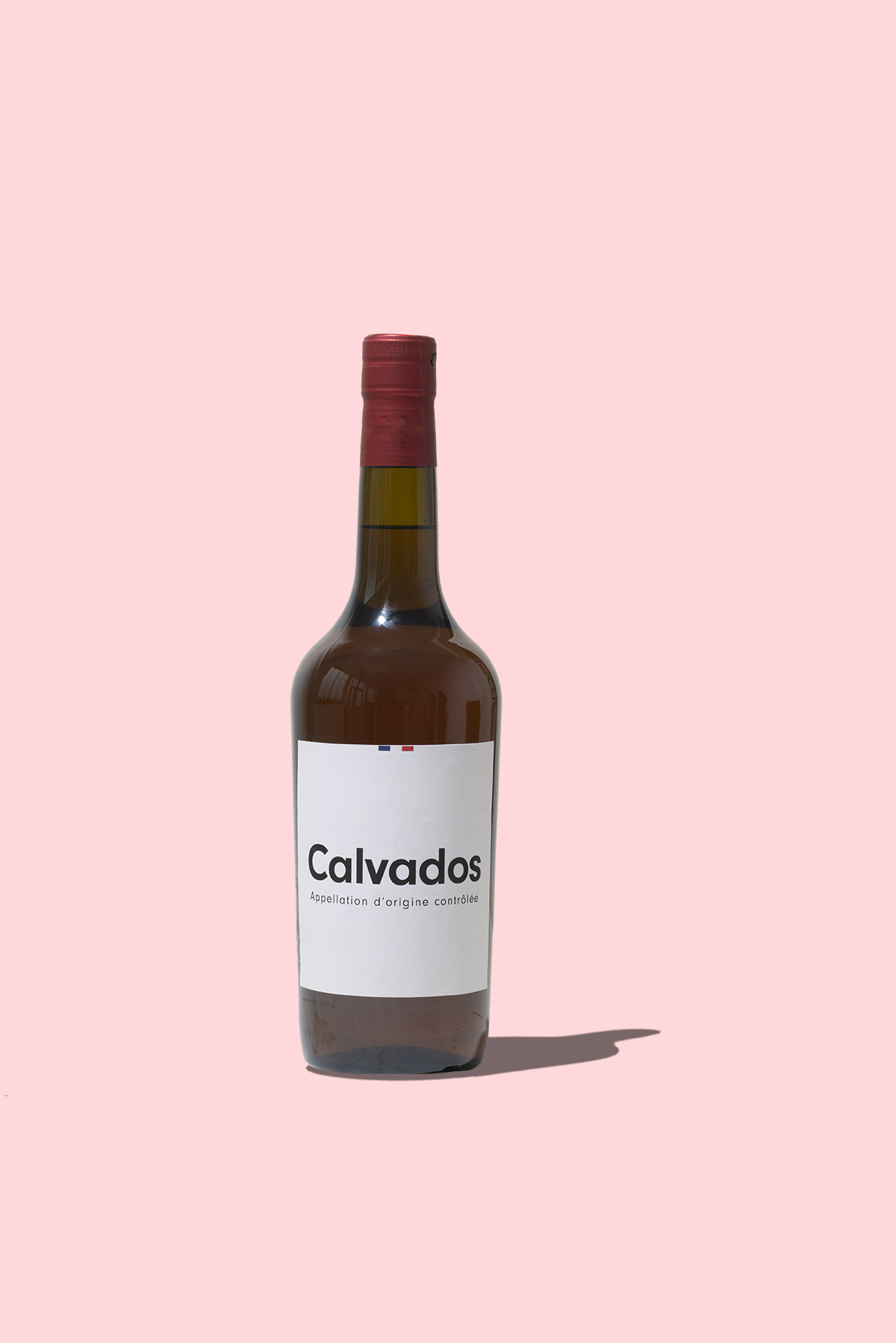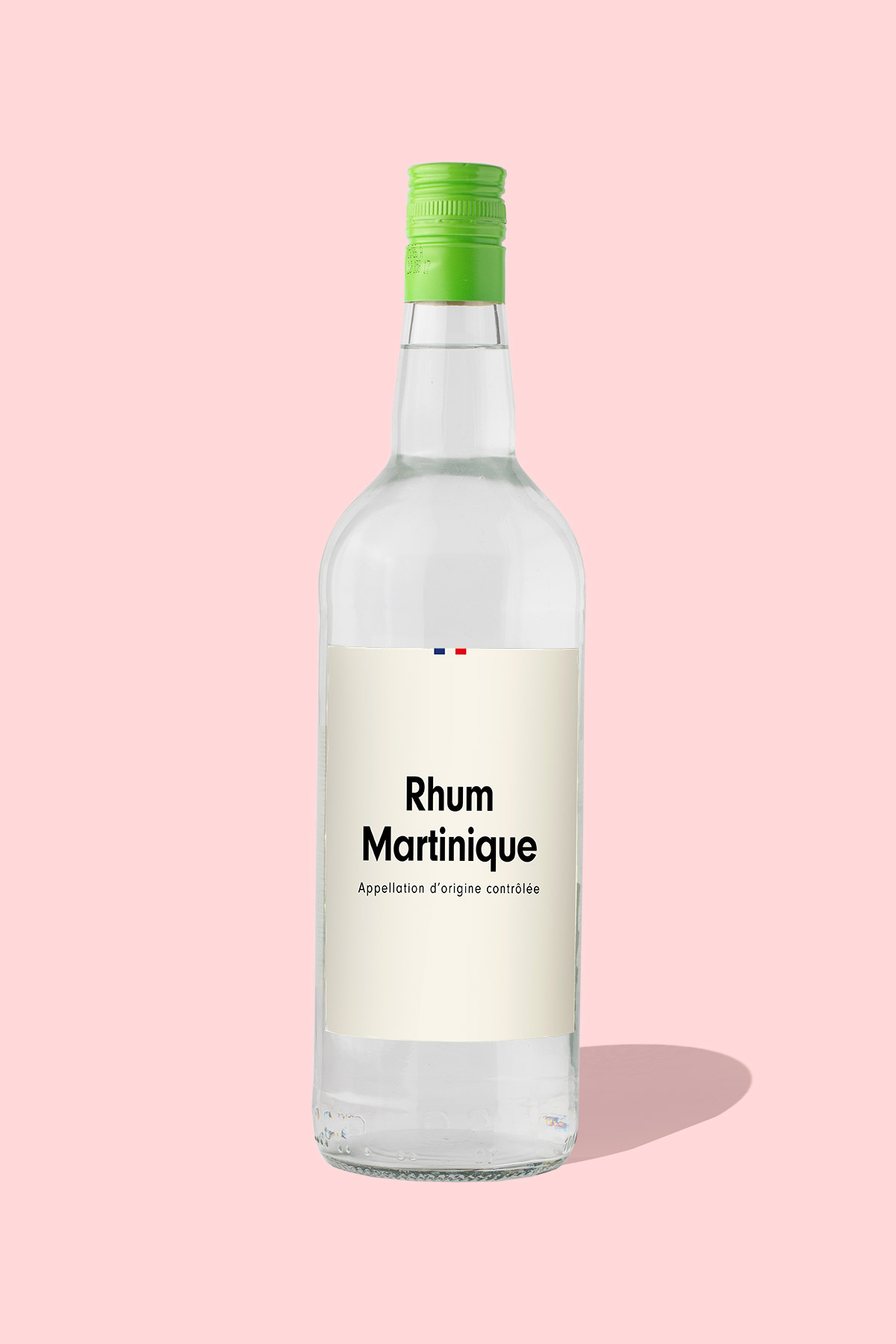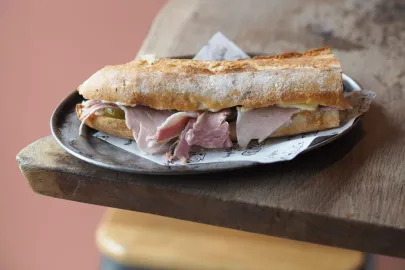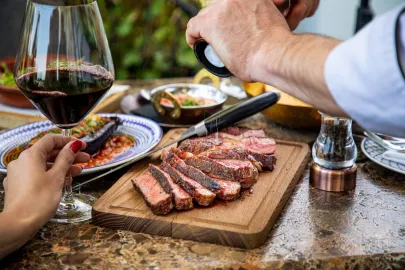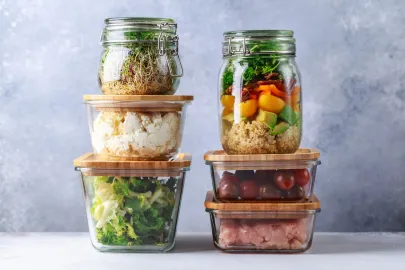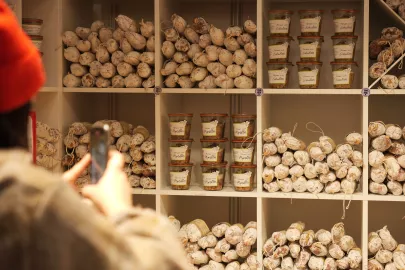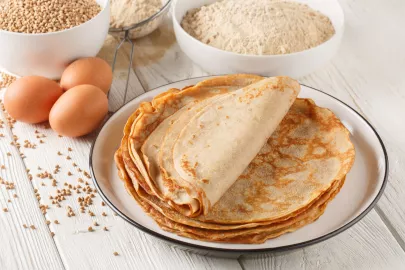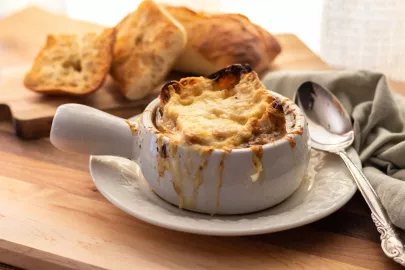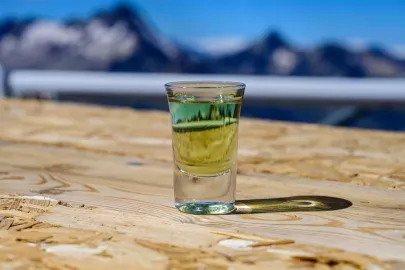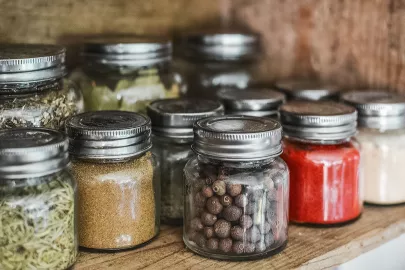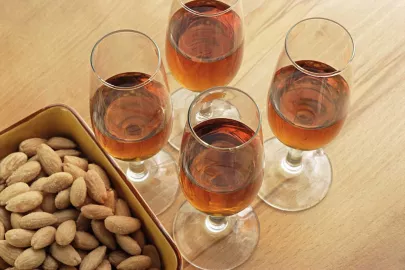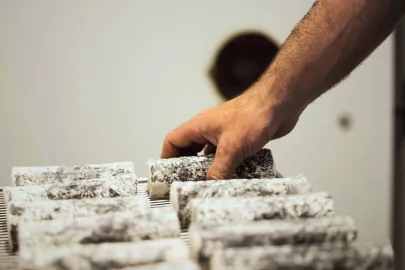From Cognac and Armagnac to Calvados, discover how the French use spirits to enhance flavour in their dishes, and how you can too!
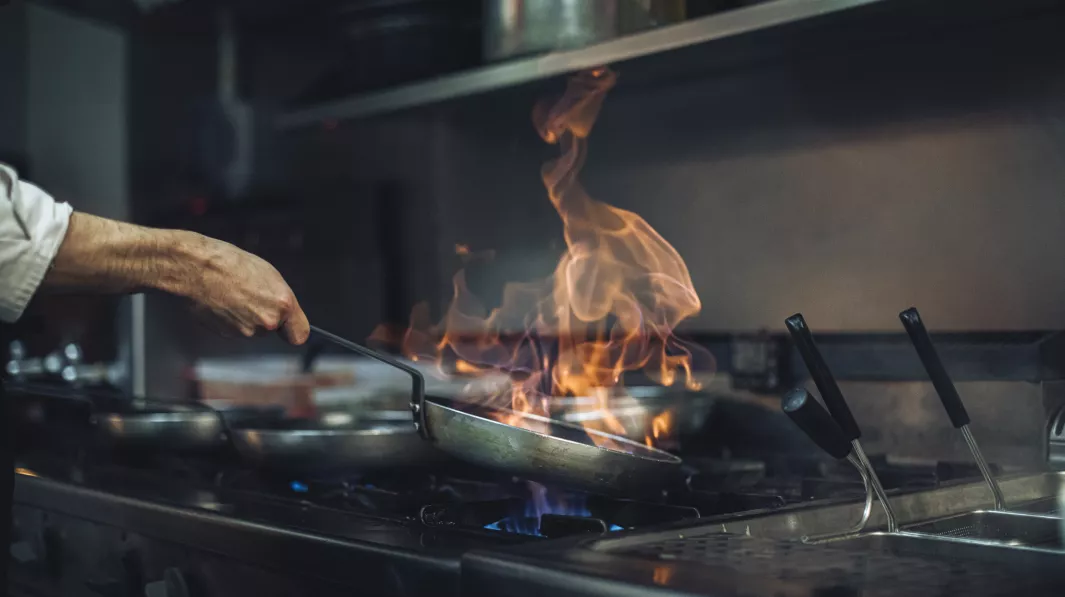
The French famously love a good tipple, but did you know that they do more with their spirits than drink them? French chefs have long understood that cooking with alcohol is a great way to bring dishes to life by boosting flavour and intensifying aroma– something us home cooks all aspire to!
How the French cook with spirits
Peek inside a traditional French cookbook, and you’re likely to find more recipes with a splash of booze than without. Whether French spirits are being used to season terrines and pâtés, flavouring slow-cooked stews and hearty casseroles, or flambéeing sweet and savoury recipes, spirits like Pastis, Chartreuse, and Armagnac provide dishes with a substantive depth of flavour. And in most cases, you only need a small splash to achieve big results!
Cognac
Cognac is a type of brandy that takes its name from the historic town of Cognac, where it’s made. It’s produced through a double distillation: first in a copper pot still, followed by at least two years in an oak cask. While flavours can vary, virtually all Cognacs have fruity, vanilla, and woody aromas.
👨🍳 Try it at home: Prawns flambeed in Cognac is a simple to prepare, yet highly impressive dish that involves sautéing large king prawns in butter, garlic, and parsley before igniting them in the pan with a splash of Cognac for dramatic flare.
Armagnac
France’s oldest brandy and Cognac’s little cousin, Armagnac is produced in the Armagnac region of southwest France. It’s single distilled, which makes it lower in alcohol but bolder in flavour, and is generally aged for about 10 years in Gascon black oak casks.
👨🍳 Try it at home: The fruity and spicy notes of Armagnac make it ideal for desserts like this Armagnac and Limousin Apple crumble. Sliced apples are tossed in a mixture of brown sugar, vanilla, and Armagnac, then spread over pre-made puff pastry, baked and served warm. Serve it with a coffee to complement the spirit’s woody, toasted aromas.
Calvados
Calvados is a brandy produced using apples grown in orchards in the Normandy region of northern France. The spirit is aged for at least two years in French oak barrels, though many are aged much longer. Younger Calvados offers a fresh apple flavour that works well in cocktails, while older Calvados (at least 15 years) possesses a deeper, spicier flavour that’s appreciated with meats.
👨🍳 Try it at home: The next time you opt for roast chicken for dinner, consider glazing it with a mixture of equal parts Calvados, chicken stock, and brown sugar, simmered until syrupy, then brushed over the whole bird.
Rum
French Rum is called “Rhum Agricole”, which is a specific style of rum made from fermenting and distilling fresh sugarcane (rather than the traditional molasses). It’s aged in oak casks for three years, during which time it develops its colour and distinct fruity, floral aromas.
👨🍳 Try it at home: Rhum agricole pairs particularly well with light, fresh desserts such as Rum Baba. A simple savarin cake is soaked with white rum syrup, then topped with whipped cream and fresh fruit of your choice (this dessert favours the bright and acidic flavours of tropical fruits in particular).
Now that you know all about French spirits and how to use them, all that’s left to do is head to the kitchen, experiment, and most importantly, taste!

